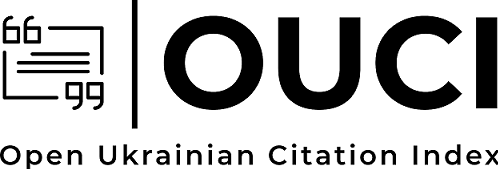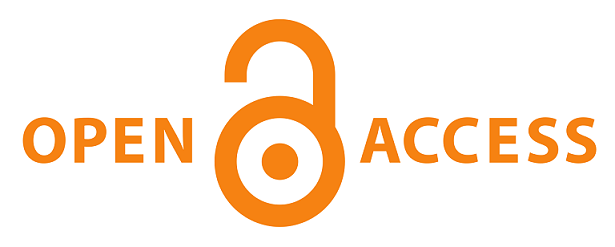The Correspondence of Ludvik Kuba with Andronyk Stepovychиas a Source for the Research of Czech-Ukrainian Cultural Communications
DOI:
https://doi.org/10.28925/2524-0757.2024.210Keywords:
Ludvik Kuba, Andronyk Stepovych, correspondence, musical folklore, Czech-Ukrainian cultural communicationsAbstract
The article analyzes the correspondence of prominent Czech folklorist and painter Ludvik Kuba (1863–1956) with Ukrainian philologist, specialist in Slavic languages and literature, teacher Andronyk Stepovych (1856/1857–1935). This epistolary complex, which is currently stored in the Manuscript Institute of the National Library of Ukraine named after V. I. Vernadskyi, includes 74 letters sent by Ludvik Kuba to Andronyk Stepovych over a long period of time — from 1884 to 1935, with a break from 1899 to 1924 and contains valuable materials related to Czech-Ukrainian cultural communications of the end of the 19th — the first third of the 20th century: collection and publication of musical folklore monuments, Andronyk Stepovych’s travels to Czechia and Ludvik Kuba to Ukraine, exchange of printed publications, cooperation with publishing houses, scientific and public institutions. These letters also indicate attention to the study of Slavic languages as a prerequisite for cultural relations. They are about the influence of socio-political events and processes on the lifestyle of intellectuals and artists, as well as their dependence on the market conditions of printed products and works of art. In addition, these texts provide important evidence for the study of the emotional and intellectual components of interpersonal communication expressed through the epistolary genre of written culture. The author believes that a closer acquaintance of the scientific community with Ludvik Kuba’s correspondence with Andronyk Stepovych can be useful for researching sociocultural processes in Central-Eastern Europe at the personal level, as well as clarifying the importance of folkloristics, linguistics, and literary studies in these processes. Therefore, a scientific publication of this epistolary complex seems desirable.
Downloads
References
Apanovych, E. M. (1982). Arkhiv A. I. Stepovicha. Soviet Slavic Studies, 5, 95–105 [in Russian].
Apanovych, E. M. (1982, September 21–23). Iz istorii ukrainsko-cheshskikh kulturnykh svyazey: L. Kuba i A. I. Stepovich. Uzlovye voprosy sovetskogo slavyanovedeniya : tez. dokl. i soobshch. ІX Vsesoyuz. nauch. konf. istorikov-slavistov (pp. 284–285) [in Russian].
Hyrych, I. (2014). Ukrainski intelektualy i politychna okremishnist (seredyna ХІХ – pochatok ХХ st.). Kyiv: Ukrainskyi pysmennyk [in Ukrainian].
Ivanchenko, M. & Steshenko, Ya. (Ed.). (1930). Systematychnyi kataloh vydan Vseukrainskoi akademii nauk. 1918–1929. Kyiv: Vyd-vo VUAN [in Ukrainian].
Klochko, O. (2018). Maslovy. Doli. Podii. Zhyttia. Kyiv: Art Knyha [in Ukrainian].
Savchenko, S. (2020). Olena Apanovych u naukovomu ta hromadskomu zhytti Ukrainy druhoi polovyny ХХ st. [PhD dissertation, Borys Grinchenko Kyiv University] [in Ukrainian].
Molnar, M. (Ed.). (1963). Liudvik Kuba pro Ukrainu. Kyiv: Derzhavne vydavnytstvo obrazotvorchoho mystetstva i muzychnoi literatury URSR [in Ukrainian].
Stepovich, A. (1897). Slavyanskie izvestiya. 93 otzyva o noveyshikh knigakh po slavyanovedeniyu. Voronezh: Tipografiya V. I. Isaeva [in Russian].
Stepovych, A. (1968). Z spomyniv pro M. V. Lysenka. In O. Lysenko (Ed.), M. V. Lysenko u spohadakh suchasnykiv (pp. 197–208). Kyiv: Muzychna Ukraina [in Ukrainian].
Tarasenko, O. (2016). Shchodennyk O. M. Lazarevskoho. Sivershchyna annals, 6, 138–143 [in Ukrainian, in Russian].
Yefremov S. (1997). Shchodennyky, 1923-1929. Kyiv: Hazeta «Rada» [in Ukrainian].
Published
How to Cite
Issue
Section
License
Copyright (c) 2024 Євген Ковальов

This work is licensed under a Creative Commons Attribution-NonCommercial-ShareAlike 4.0 International License.
Authors who publish in this journal retain the right of authorship of the work and give to the journal right of first publication of this work under the conditions of Creative Commons: Attribution-NonCommercial-ShareAlike 4.0 International (CC BY-NC-SA 4.0), which allows others freely distribute the work published with reference to the authors of the original work and the first publication of this magazine.














